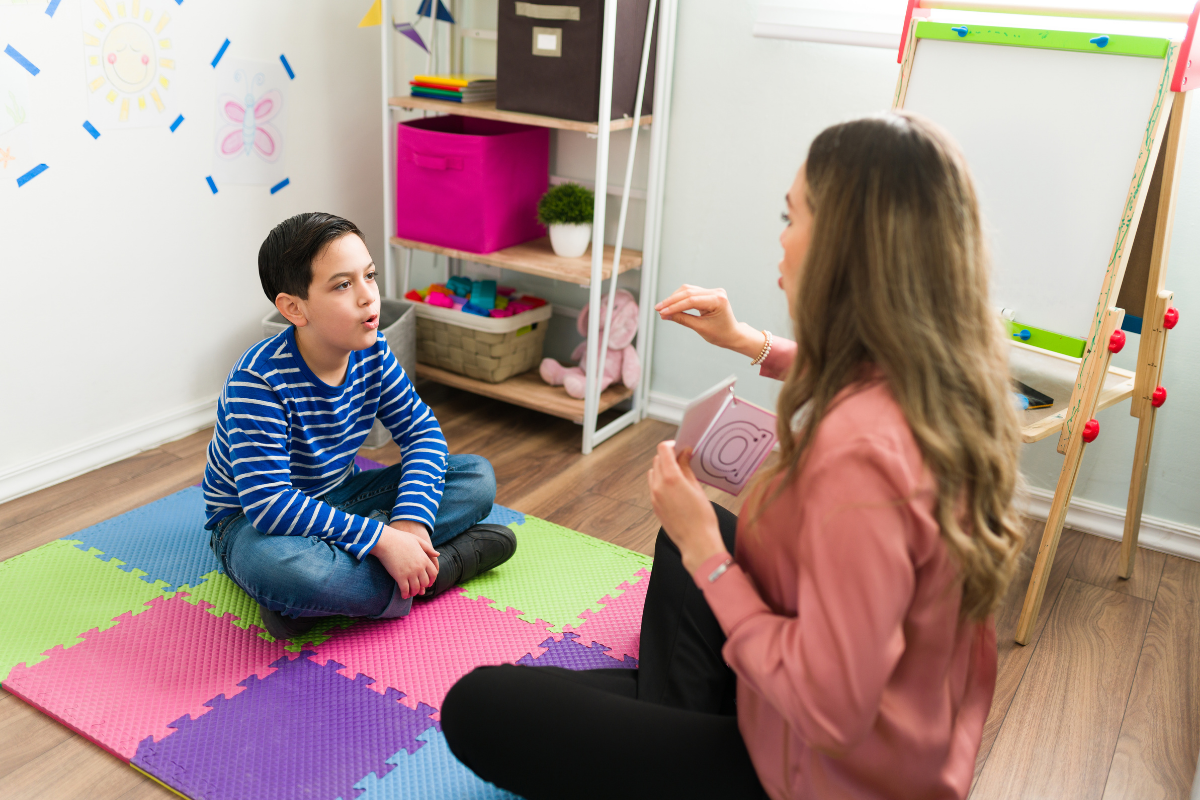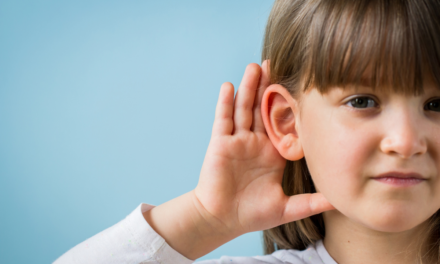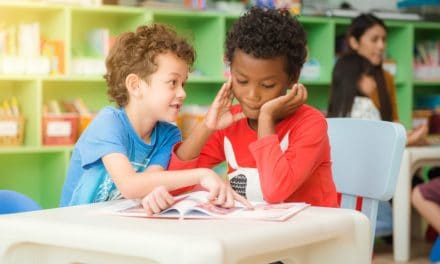What is the Link Between Hearing Loss and Language Development?
Written by Laura Abdulnour,
Audiologist

It is important to hear all the sounds in order to reproduce them properly. For this reason, children with hearing loss generally experience delayed language development. This can have several impacts, such as hindering socialization with other children of his or her age.
Influencing Factors
Every hearing-impaired child has different language abilities. Indeed, there are many factors that are influencing language development:
Age at the onset of the hearing loss:
Children affected by a congenital (at birth) hearing loss, that never heard perfectly, have a greater language development delay than children who have been hearing correctly.
Age at the identification of hearing loss:
The earlier a child’s hearing loss is identified; the more appropriate treatment will be given at a young age. This will prevent the brain from prolonged sensory deprivation. Furthermore, there would be a sensitive period for language acquisition. In other words, after a certain age, language acquisition is always possible, but the process is much more difficult and time-consuming.
Severity of hearing loss:
Of course, the impact of hearing loss on language development is not the same depending on the severity of the hearing loss, it depends on how difficult it is for the child to hear the sounds.
Stability of hearing loss:
A child that never heard perfectly won’t have the same language abilities as a child that only has poor hearing when he has an ear infection, for example.
Other conditions:
If the child has another disorder in addition to its loss (such as visual impairment, cleft palate, or intellectual impairment) this could also explain a delay in language development.
Language Development in Children with Hearing Impairment
The speed at which language develops is not the same from one child to another. However, there are some expected age-related markers. If you notice that your child is falling behind, it could be due to hearing loss. When in doubt, do not hesitate to speak with the pediatrician and consult in audiology.

Examples of Difficulties a Hearing-Impaired Child May Have Included
- Has difficulty understanding speech, especially in more difficult environments such as when there is a lot of noise or reverberation.
- Has difficulty pronouncing consonants and/or vowels.
- Mixing some sounds (for example say «tat» rather than «cat»).
- Knows fewer vocabulary words.
- Develops language more slowly or later.
When a hearing-impaired child also has language difficulties, he or she will consult a speech-language pathologist. The speech-language pathologist is the professional of speech, language, communication, and swallowing. He helps the child to understand and express himself.
Rapid intervention reduces the negative impact of hearing loss on language development. The wearing of hearing aids adapted to the hearing impairment helps to promote the understanding of the sounds and therefore their pronunciation.
Tips on how to Stimulate your Child’s Language
There are tips for stimulating your child’s language development. Here are tips from the Agirtôt.org program.
- Telling stories in your mother tongue
- Singing simple songs
- Encourage the child to imitate the sounds
- Reaching out to the child to talk to them
- Name the child’s emotions
- Describe what you do or what the child does
- Wait for the child to express a request before giving him what he wants
If you still have questions about the impacts of hearing loss in children, do not hesitate to contact the ODYO team!

 1.800.909.ODYO
1.800.909.ODYO support@odyo.ca
support@odyo.ca Online
Online  Shop
Shop  Blog
Blog 








